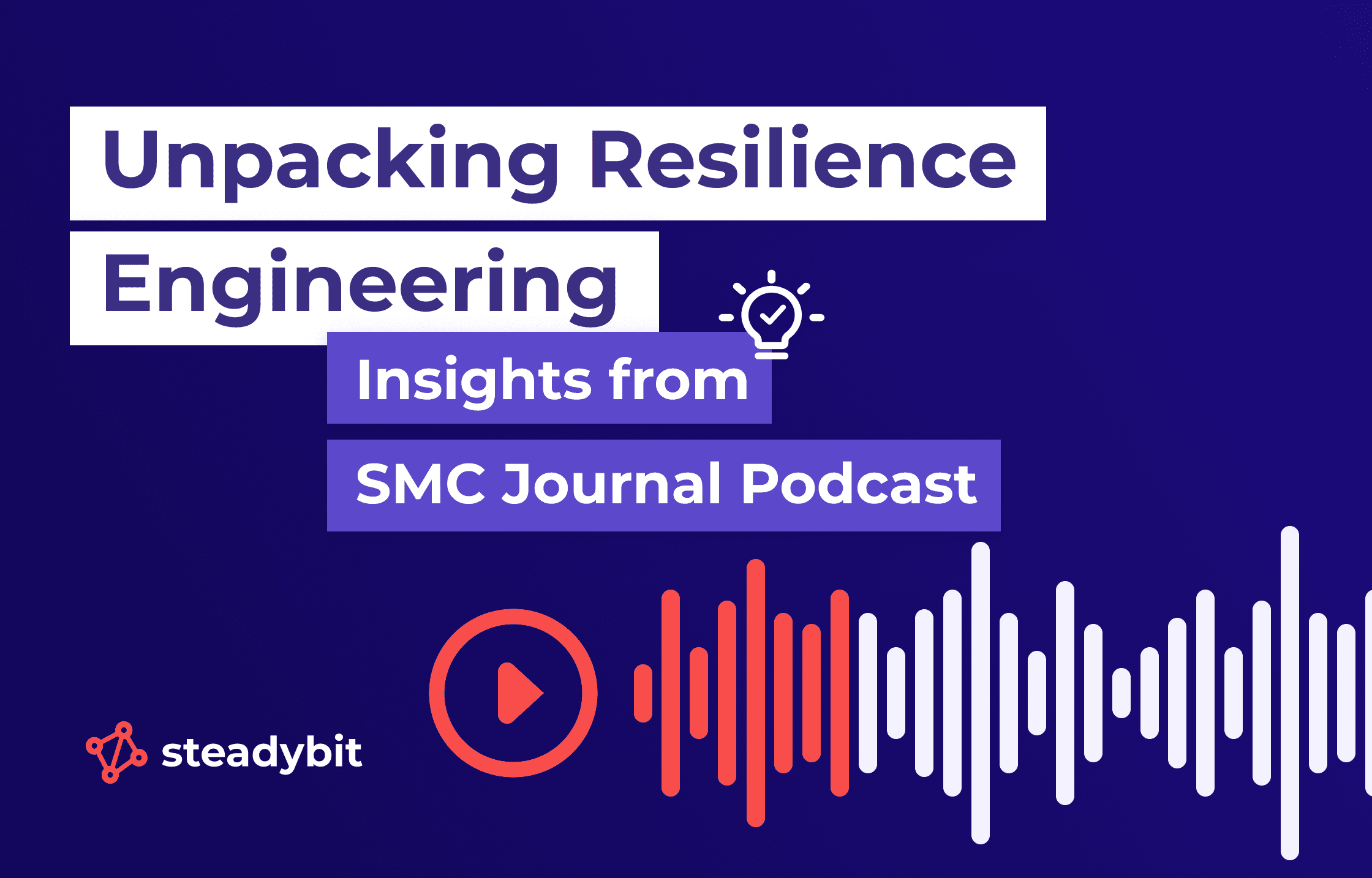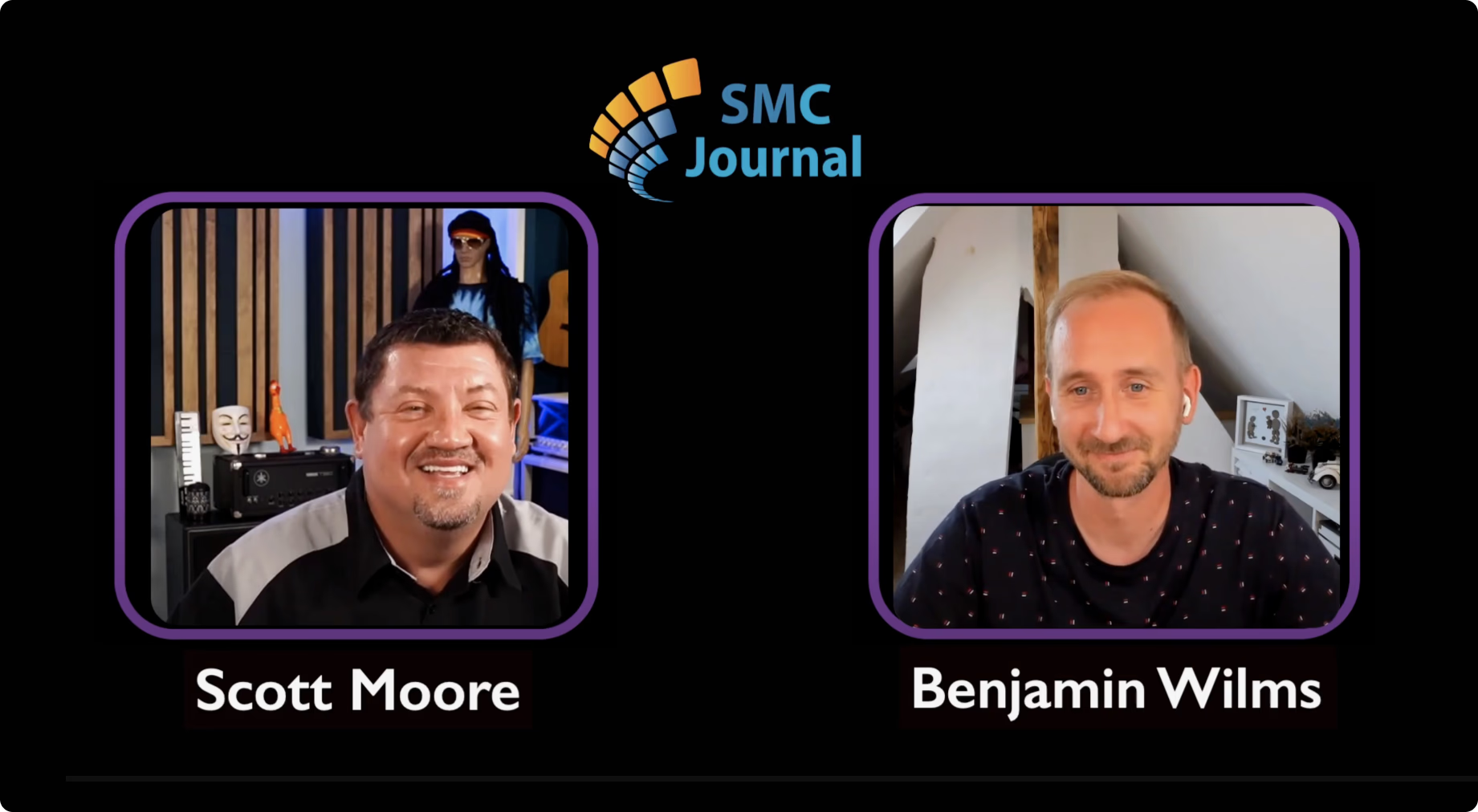Unpacking Resilience Engineering with Steadybit’s Co-Founder and CEO, Benjamin Wilms, on the SMC Journal Podcast

We are very excited to share some insights from a recent episode of the SMC Journal podcast featuring our co-founder and CEO, Benjamin Wilms. This episode dives deep into the world of performance engineering, exploring topics such as resilience testing, chaos engineering, and the role Steadybit is playing in all of this.

Screen of Scott Moore and Benjamin Wilms during the Podcast.
Supported by OpenText, a global leader in this field, the podcast begins with a brief overview of the LoadRunner Professional documentation and the LoadRunner Help Center online. This provides valuable insights into the ‘Chaos Testing for Scenarios‘ section, which is essential reading for anyone in this industry. It’s all about resilience, people! This episode highlights the integrations between two companies: LoadRunner and Steadybit.

Screen of the LoadRunner Professional documentation and the LoadRunner Help Center online during the Podcast.
In case you haven’t heard, we’re quite significant in both public cloud and on-prem environments. Steadybit enables users to define and execute chaos experiments on applications being tested. This is crucial for assessing an application’s resilience and obtaining additional metrics during load tests.
Benjamin shares his expertise on resilience engineering and its impact on the market today. He passionately discusses how even small teams can implement chaos engineering with the resources at their disposal. It’s not just limited to large organizations, and that’s an important message.
- By proactively checking production stability during development, teams can ensure a smooth transition to production.
- This allows teams to focus on adding more features later.
- Need to design and run specific experiments? Steadybit has got you covered.
Examples include:
We’ll assist you in monitoring how your system responds to a latency spike or tracking error rates. You can even analyze log files and Kubernetes activity. And the best part? All this data from your monitoring systems is compiled into a neat, consolidated report.
Our co-founder’s conversation with Scott Moore, the host of SMC Journal, covered a wide range of topics:
- Software testing
- Tuning
- Observability
- Monitoring
- Security
- Resiliency
Scott, who is also a founder of a new company, was eager to understand how our integration with LoadRunner, a major load testing product, was shaping the future of load testing.
Speaking of the future, there was mention of an exciting new feature coming soon for LoadRunner. Picture this: a landscape that identifies weak spots in your network or your cloud provider. Now that’s guidance worth waiting for!
One important lesson from the episode was the trade-off between investing in reliability and delivering new features. Finding the right balance is crucial for success, and Benjamin believes embracing chaos and resiliency engineering is the way forward, especially for complex applications.
So whether you’re part of a large organization or a small team, take some time to check out the episode. It might just help you optimize your resources—software, people, and more—to make your applications more resilient and your entire organization better.